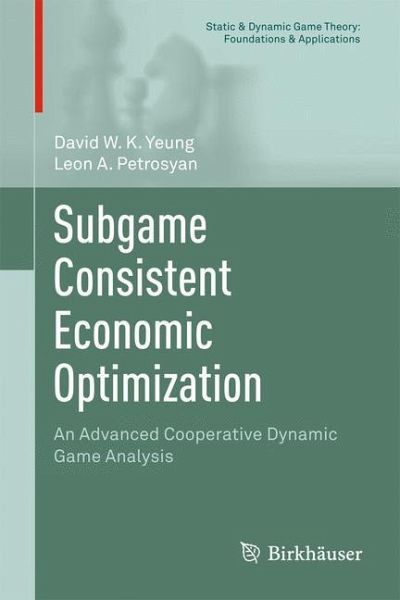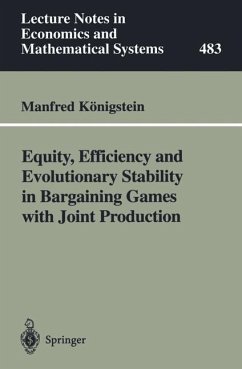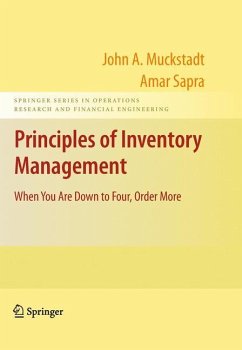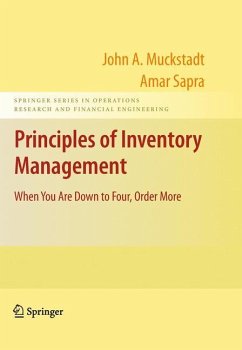
Subgame Consistent Economic Optimization
An Advanced Cooperative Dynamic Game Analysis

PAYBACK Punkte
19 °P sammeln!
Various imperfections in existing market systems prevent the free market from serving as a truly efficient allocation mechanism, but optimization of economic activities provides an effective remedial measure. Cooperative optimization claims that socially optimal and individually rational solutions to decision problems involving strategic action over time exist. To ensure that cooperation will last throughout the agreement period, however, the stringent condition of subgame consistency is required.This textbook presents a study of subgame consistent economic optimization, developing game-theore...
Various imperfections in existing market systems prevent the free market from serving as a truly efficient allocation mechanism, but optimization of economic activities provides an effective remedial measure. Cooperative optimization claims that socially optimal and individually rational solutions to decision problems involving strategic action over time exist. To ensure that cooperation will last throughout the agreement period, however, the stringent condition of subgame consistency is required.
This textbook presents a study of subgame consistent economic optimization, developing game-theoretic optimization techniques to establish the foundation for an effective policy menu to tackle the suboptimal behavior that the conventional market mechanism fails to resolve.
This textbook presents a study of subgame consistent economic optimization, developing game-theoretic optimization techniques to establish the foundation for an effective policy menu to tackle the suboptimal behavior that the conventional market mechanism fails to resolve.














